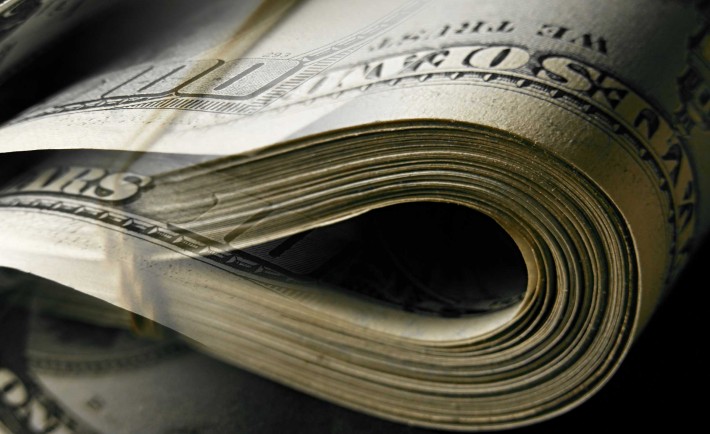Five of the world’s biggest banks are about to plead guilty to a stunning array of crimes. So brazen were these superrich, powerful banks that they referred to themselves as “the cartel” or “the mafia” as they illegally fixed prices to line their own pockets.
The banks’ crimes have to do with price-fixing on the foreign currency exchange market, the largest market in the world – 30 times larger than the New York Stock Exchange, for example. Dollars and yen and euros and pounds are traded daily to the tune of more than $5.3 trillion. To be clear, that gigantic number is
$5,300,000,000,000.00
While the Justice Department is preparing to announce that the holding companies for Barclays, JPMorgan Chase, Citigroup, UBS and the Royal Bank of Scotland will plead guilty to criminal antitrust violations and pay several billion dollars in fines, The New York Times reports that punishments will stop there:
As much as prosecutors want to punish banks for misdeeds, they are also mindful that too harsh a penalty could imperil banks that are at the heart of the global economy, a balancing act that could produce pleas that are more symbolic than sweeping.
Lawyers for the banks are asking that the banks be permitted to “conduct business as usual despite being felons,” despite laws in place designed to punish them for their egregious criminal acts. These waiver requests are expected to be granted, because the Justice Department officially considers “collateral consequences” like business slowdowns before arresting or punishing corporate America. It happens all the time, leading to lenient sentences.
Meanwhile, at the other end of the justice system, no one is asked to consider the impact on the families or communities of the poor as they are routinely arrested and convicted for a wide array of petty, nonviolent crimes like possessing marijuana, jumping turnstiles or prostitution.
In 2005, for example, more than 22,000 people were arrested for loitering in just New York City alone, according to Matt Taibbi, author of the excellent and disturbing The Divide. Another 140,000 were charged with drinking alcohol from an open container, an offense that is virtually only given to poor people of color. Onebrave judge said he could not remember ever arraigning a white defendant for the violation, and indeed a Brooklyn court review found that only four percent of drinking offense were against whites, even though they make up one-third of the population.
The collateral consequences of rounding up and caging the poor in our current system of mass incarceration leaves families without breadwinners, children without parents, and an epidemic of “missing black men” — though of course we know where they are: in prison.
Hundreds of thousands of Americans currently incarcerated for nonviolent drug offenses face a civic death when released, as they are barred from many jobs, public housing, student loans and even, cruelly, food stamps. Most cannot vote or serve on juries. We all lose the benefit of their participation.
But no high priced lawyers point any of this out at their sentencing. No one winces at the collateral consequences of a grandmother taking in parentless children, or an education or career interrupted, a family member taken away. No one wrings their hands at the loss to the neighborhood, as our inner cities are further gutted of juveniles and young adults.
“Collateral consequences” is clearly a legal buzz phrase that applies only to the rich. Those two words alone demonstrate the huge divide between our legal system’s constant bowing to the requests of the rich, while turning its back on the humanity of the poor. The phrase is an official, legal recognition that criminal justice actions have ripples and consequences beyond the defendant himself – but our justice system shows time and again that this only matters for the 1 percent.


